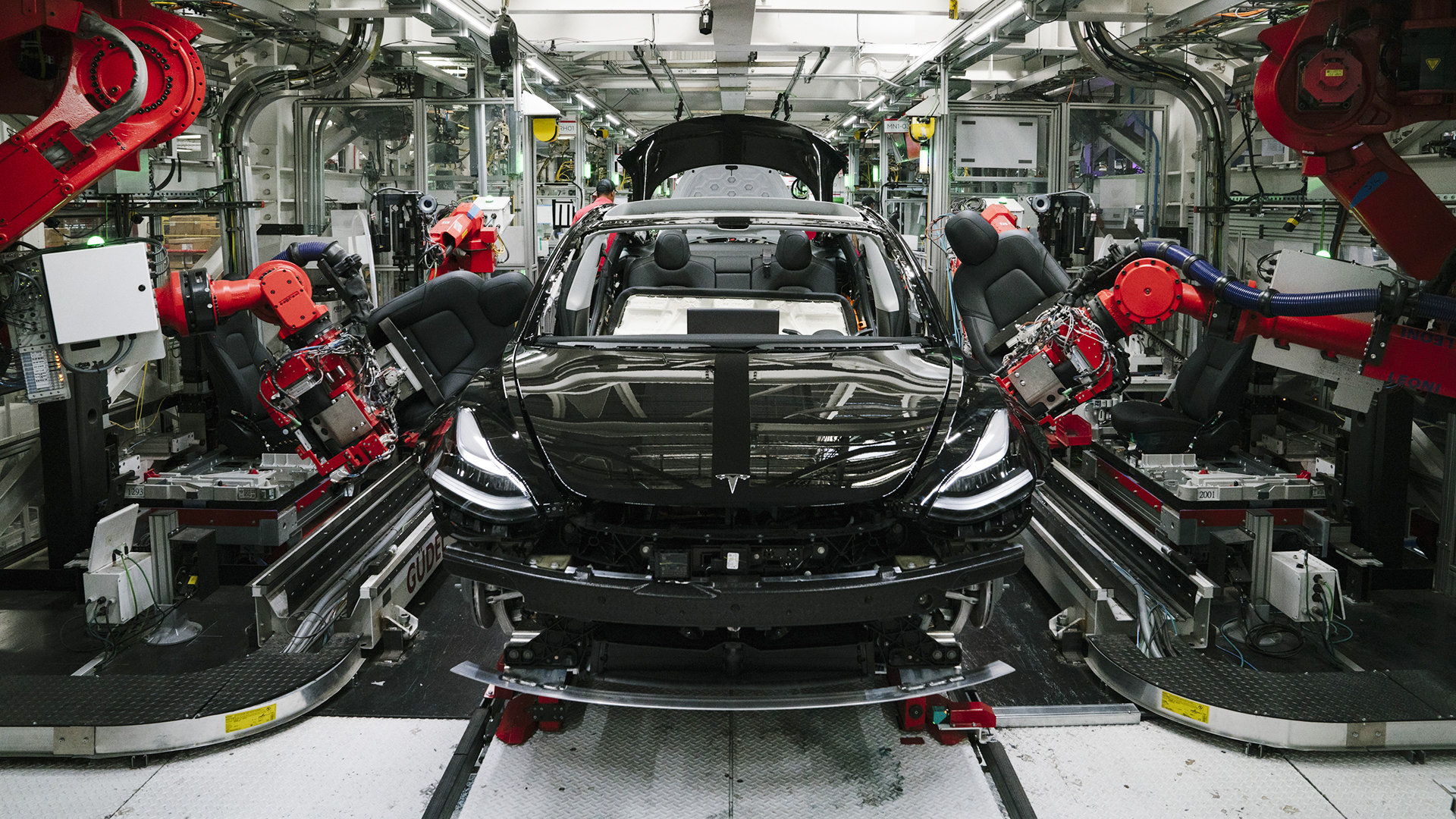

Tesla lost $408 million and one of its longest-serving executives in the second quarter of the year, as rising sales of the Model 3 failed to deliver the profitability the company promised nearly a year ago. Though $614 million in free cash flow bolstered the firm’s cash on hand to $5 billion, questions about Tesla’s core business continue to deepen. With manufacturing problems continuing unabated and core business profitability remaining elusive, Tesla’s future continues to hang on its audacious bet on “Full Self-Driving” technology.
Tesla’s Chief Technical Officer and co-founder J.B. Straubel stepped down from his day-to-day role at the company, taking on an advisory role at the electric automaker while continuing to run a mysterious recycling business called Redwood Materials. Straubel has been CEO Elon Musk’s collaborator since Tesla’s earliest days, and is credited by sources throughout the company’s history as being “the technical brains behind the operation.” Straubel had also taken point on Tesla’s increasingly-troubled relationship with its battery supplier Panasonic, and his departure raises fresh questions about the firm’s most enduring and important supplier relationship.
Tesla’s all-important “growth story” continues to be driven by Model 3, which accounted for 77,634 of the company’s roughly 91,000 deliveries in the quarter. Though Tesla claims that 60% of trade-ins by Model 3 buyers are non-premium brands its average transaction price remains solidly in premium territory at about $50,000, making its lack of profitability even more troubling. If Tesla can’t turn turn a profit on a new model with such an enviable combination of volume and high ATP (especially in a quarter that saw inventory collapse by 40%), its fundamental viability as an automaker has to be called into question.
After all, Tesla had said that it would be profitable and cashflow positive in every quarter since Q3 of 2018 and after deliver during the second half of last year the company has lost over a billion dollars combined in the first half of this year. After talking up the importance of fiscal discipline and funding growth from profits, the company has returned to its old argument that growth is simply more important than profits. However Tesla’s capital expenditures are collapsing, falling by $30 million quarter-over-quarter and $360 million year-over-year, showing that growth-sustaining investments aren’t responsible for its losses. Research and Development also continues to fall, by $16 million QoQ and $62 million YoY.
Tesla’s Model 3 delivery growth of 52% QoQ and 321% YoY was not matched by far slower growth in store and service locations, which grew just 7% QoQ and 16% YoY, as well as mobile fleet service, which was up 16% QoQ and 91% YoY. Despite admitting that these areas would require investment as Tesla scales, Musk claimed on the company’s earnings call that the company had made “massive improvements on service,” especially in terms of parts delay times. That claim is hardly reflected in the growing drumbeat of Tesla service complaints in online forums, not only in the owner forums and consumer complaint sites but even among investors who often dismiss such concerns as “FUD.”
With “growth” now entrenched as Tesla’s major priority, manufacturing quality, worker safety and even emission regulation compliance at its factory seem to have gone out the window along with service. Keeping production rolling at all costs while reducing any expenditure that doesn’t drive growth may keep its growth narrative alive in the short term, but it adds to a future reckoning that will eventually come due. Poor quality drives up demand for service, which will further increase wait times and ultimately destroy one of Tesla’s most important assets: the affection and loyalty of its customers and fans. That this corrosive dynamic continues to develop despite strong sales at high prices and renewed financial losses suggests that Tesla’s core business is fundamentally broken, and that the company is having to resort to any and all means just to keep its head slightly above water.
This state of affairs shows once again that Musk has ultimately bet Tesla’s future on his audacious “Full Self-Driving” gambit. If Tesla can deliver on its promise to make its current cars capable of Level 5 autonomy with software updates alone, the moribund fundamentals of its core business will become an afterthought as its cars become appreciating assets that can independently earn their owners and Tesla steady cashflow in a planned robotaxi mobility service. But given the deep skepticism with which most experts view Tesla’s claims about its autonomous drive technology and the lack of compelling demonstrations of its capabilities, that scenario is looking more and more like a longshot bet.
Throughout Tesla’s history, it has consistently distracted attention away from its troubled core business of making and selling cars by promising a new technological breakthrough just around the corner. That has resulted in a long string of unfulfilled promises, from 100% solar-powered Superchargers and battery swap stations to a $35,000 Model 3 (which is reportedly available to order “off menu” but has not been made widely available) and one-hour body repairs. But more importantly, it’s required Tesla to make ever bigger and harder-to-deliver-on commitments, culminating in the massive gamble that “Full Self-Driving” represents.
With this singular make-or-break target drawing ever closer, any hope that Tesla could survive on the strength of its core business even if it can’t deliver “Full Self-Driving” seems increasingly unrealistic. After all, culture is habit and Tesla only seemed focused on creating a profitable and self-sustaining core car business for the last six months of last year. Now, as the mercurial automaker returns to its old focus on growth and big gambles on future technology, its situation seems as precarious as ever… a fact that even 95,000 deliveries in a quarter can’t seem to change.